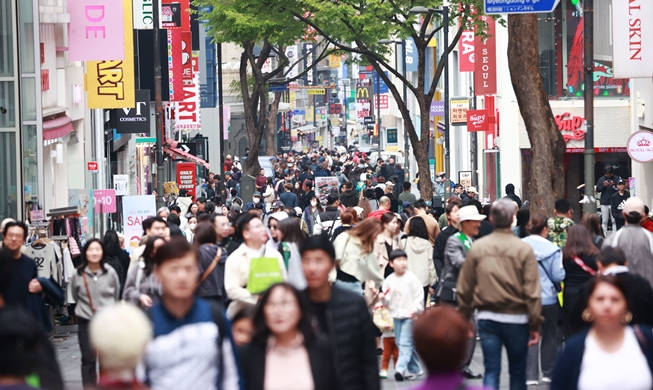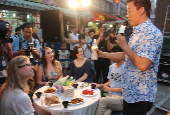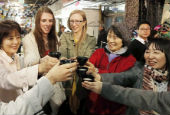-
 Korea.net's 24-hour YouTube channel
Korea.net's 24-hour YouTube channel- NEWS FOCUS
- ABOUT KOREA
- EVENTS
- RESOURCES
- GOVERNMENT
- ABOUT US
- 한국어
- English
- 日本語
- 中文
- العربية
- Español
- Français
- Deutsch
- Pусский
- Tiếng Việt
- Indonesian
There is a wider range of Korean liquors than commonly assumed.
The Ministry of Agriculture, Food and Rural Affairs has recently given awards to 32 traditional alcoholic beverages including various types of rice beer (makegeolli), medicinal wine (yakju), refined rice beer (cheongju), fruit-based wine (gwashilju)and distilled spirits (soju), all part of the 2014 Korea Liquors Contest.
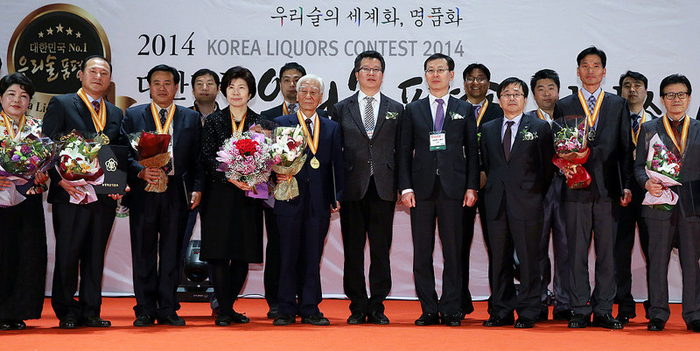
Group photo of the 2014 Korea Liquors Contest winners. (photo: Jeon Han)
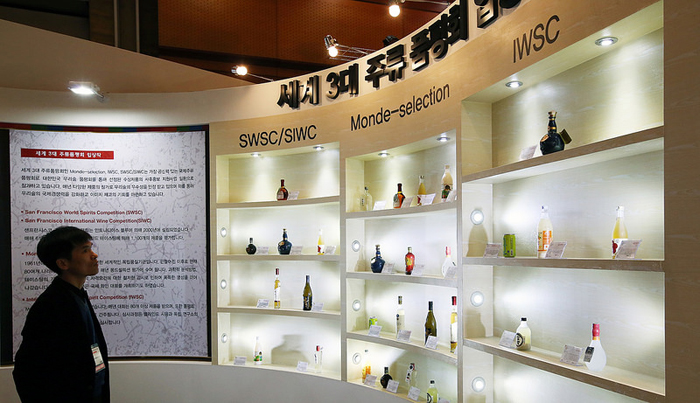
2014 Korea Liquors Contest display wall. (photo: Jeon Han)
Though awards went to a wide range of drinks, rice beer, particularly the unpasteurized kind, is probably the most familiar among the award-winners. Unpasteurized makgeolli has a short expiry date due to the absence of sterilization. However, this enables the drinker to taste the freshness of the ingredients, particularly preferred by rice beer aficionados.
The grand prize went to Shin Pyeong Brewery's Baekryeon Makgeolli, also called "White Lotus Draft Makgeolli - Misty." The runner-up was Julpo Saengmakgeolli made by Naebyeonsan Dongjin Wine. It was followed by Baesangmyeon Juga's Nerinmaeul Makgeolli and last but not least was S.D. & Associates' Cheoma Yiyagi Makgeolli.
The winning White Lotus Baekryeon Makgeolli was crafted after three years of research and development in a brewery in Danggin, Chungcheongnam-do. As a family business spanning three generations, the Shin Pyeong Brewery has modernized and restored a hand-me-down temple recipe for its Baekryeongokcha, literally meaning, "white lotus grain tea." With a slight fragrance from the white lotus leaves added during the fermentation process, Baekryeon Makgeolli has four variations. Among the four, White Lotus - Misty, with an alcohol content of about 7 percent, won the prize.
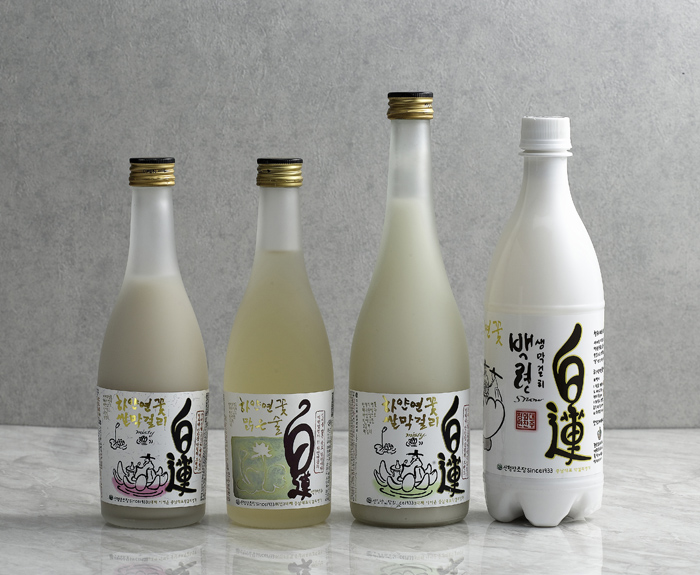
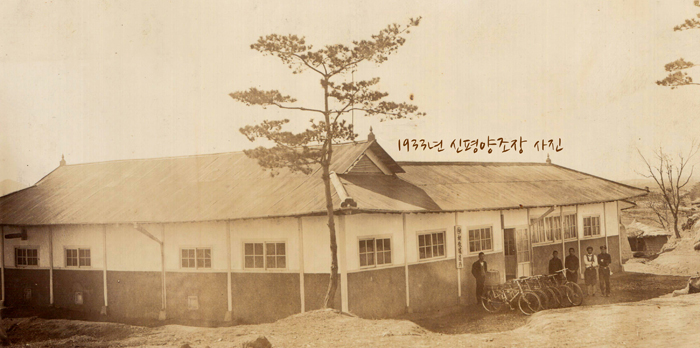
(Top) Four variations of White Lotus, Baekryeon Makgeolli. (Bottom) The Shin Pyeong Brewery has been in operation since 1933. (photos: Shin Pyeong Brewery)
First opened in 1933, the Shin Pyeong Brewery is nowadays open to visitors who can try their hand at making rice malt bricks and at brewing the traditional beverage. The brewery also operates the Chez Maak restaurants with locations in the Garosu-gil neighborhood and near Gangnam Station.
More information is available at the company's website (http://www.koreansul.co.kr/shop/main/index.php).
The runner-up, Julpo Saengmakgeolli, is made by Naebyeonsan Dongjin Wine, located in Buan, Jeollabuk-do (North Jeolla Province). With state-of-the-art temperature control systems, the fermentation takes place under low temperatures, leaving the taste clean and simple. The winery also makes Buan Cham Ppong Makgeolli, a mulberry-flavored variety, as well as other fruit and medicinal wines.
Please visit the company's homepage for more information (http://www.dongjinwine.co.kr/shopping/board.php?board=introboard&command=shop).
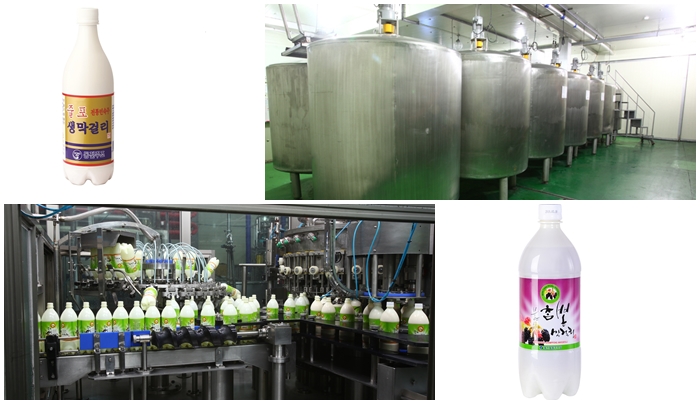
(Top left) Julpo Saengmakgeolli and (Bottom right) Cham Ppong Makgeolli are both made by Naebyeonsan Dongjin Wine, (Others) An automated manufacturing line. (photos: Naebyeonsan Dongjin Wine)
In third place was Nerinmaeul Makgeolli made by Baesangmyeon Juga, which has no additives besides rice, water and malt. The carbon content and sweetness changes with the duration of its fermentation, allowing for four variations. Named "Spring," "Summer," "Fall" and "Winter," the customers are encouraged to sample each one.
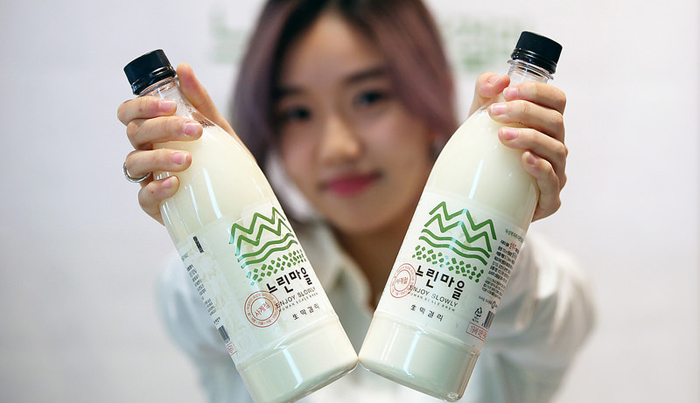
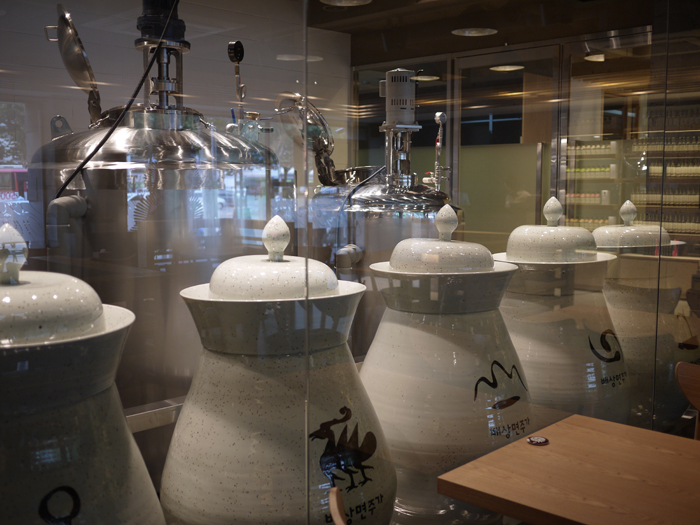
(Top) Nerinmaeul Makgeolli. (photo: Jeon Han) (Bottom) The fermentation facilities inside the Nerinmaeul brewery & pub. (photo: Baesangmyeon Juga)
Baesangmyeon Juga also runs an urban brewery and restaurant, the Nerinmaeul Brewery & Pub (unofficial translation), with locations in Yangjae, Gangnam and along the Cheonggyecheon Stream in downtown Seoul.
More information is available at the company's homepage (http://www.soolsool.co.kr/main.asp).
The final rice beer was S.D. & Associates' Cheoma Yiyagi Makgeolli which is made by blending it with the traditional cheonma herb. Cheonma is known to help with blood circulation, relieve headaches and improve brain activity. Using cheonma grown in Muju, Jeollabuk-do, and using fermentation techniques inspired from Champagne, France, helps add more of a natural carbonation to the drink, to extend its freshness.
Cheonma Yiyagi Makgeolli is available online (http://www.sd-a.co.kr/).
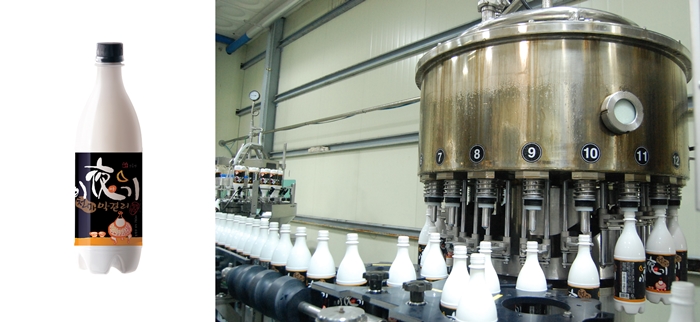
(Left) Cheonma Yiyagi Makgeolli and (right) its manufacturing facilities. (photos: S.D. & Associates)
By Paik Hyun
Korea.net Staff Writer
cathy@korea.kr
Most popular
- First hearing-impaired K-pop act hopes for 'barrier-free world'
- 'Mad Max' director impressed by 'cinema-literate' Korean viewers
- Romanian presidential couple visits national cemetery
- 'Korean mythology is just as wonderful as Greek and Roman'
- Hit drama 'Beef' wins awards from 3 major Hollywood guilds




